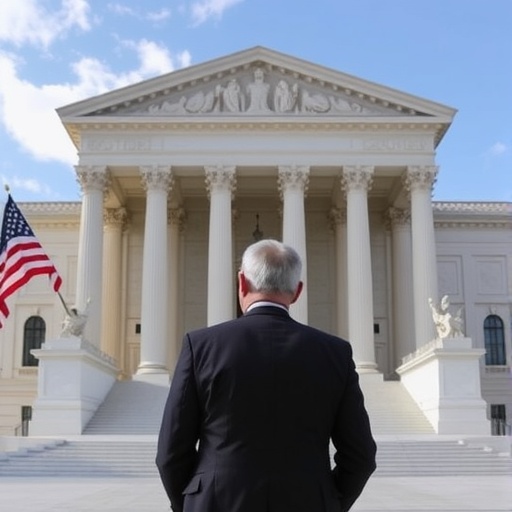Abortion Rights Under Fire: Conservatives Target Pennsylvania Supreme Court in High-Stakes Retention Battle
In a pivotal moment for reproductive freedoms across the nation, the upcoming retention vote for the Pennsylvania Supreme Court has thrust Abortion access into the national spotlight, as conservative groups mobilize to unseat justices seen as barriers to stricter regulations. With Pennsylvania’s swing-state status amplifying the drama, this election could tip the balance of a court that has long safeguarded reproductive rights, potentially reshaping Abortion laws in a post-Roe v. Wade landscape.
The retention vote, scheduled for November 2023, involves three Democratic justices—Christine Donohue, David Wecht, and Kevin Dougherty—whose seats are up for yes-or-no retention by voters. Conservatives, backed by national organizations like the Republican State Leadership Committee, view this as a golden opportunity to flip the court’s 5-2 Democratic majority, arguing that the current bench has overreached in blocking GOP-led abortion restrictions. Democrats and health advocates, meanwhile, warn that ousting these justices could pave the way for a conservative supermajority, endangering the state’s robust protections for abortion access enshrined in recent court rulings.
This battle isn’t just about Pennsylvania; it’s a microcosm of the broader national fight over reproductive rights following the Supreme Court’s 2022 Dobbs decision, which overturned Roe and returned abortion regulation to the states. In Pennsylvania, where abortion remains legal up to 24 weeks under state law, the court’s influence has been crucial in upholding these rights amid relentless challenges from conservative lawmakers.
Conservatives Gear Up for a Courtroom Revolution
Conservative strategists are pouring resources into what they call a “judicial reset” in Pennsylvania, framing the retention vote as a referendum on judicial activism. Leading the charge is the Yes on Question 1 PAC, a super PAC funded by dark money groups affiliated with national conservative donors. According to campaign finance reports, the group has already spent over $2 million on ads portraying the incumbent justices as out-of-touch liberals who prioritize abortion rights over “fetal personhood.”
“The Pennsylvania Supreme Court has become a rubber stamp for the radical left’s abortion agenda,” said Tom Mechler, president of the Republican State Leadership Committee, in a recent statement. “Voters deserve a court that respects the sanctity of life and the will of the people.” Mechler’s organization has pledged up to $5 million for the effort, targeting rural and suburban districts where anti-abortion sentiment runs high.
The conservative playbook includes a multi-pronged attack: television ads, mailers, and digital campaigns that highlight controversial court decisions, such as the 2022 ruling striking down parts of a GOP-backed parental notification law for minors seeking abortions. Critics within the conservative camp argue that these justices have shielded abortion providers from accountability, citing statistics from the Guttmacher Institute showing Pennsylvania’s abortion rate at 15.7 per 1,000 women aged 15-44 in 2020—higher than the national average.
But the push isn’t without internal tensions. Some moderate Republicans worry that the aggressive tactics could alienate swing voters in Philadelphia and its suburbs, where support for reproductive rights has surged since Dobbs. Polling from Emerson College Polling released in October 2023 indicates that 58% of Pennsylvanians oppose further restrictions on abortion, a figure that conservatives are scrambling to counter with targeted messaging on “late-term abortions,” despite data from the CDC showing such procedures account for less than 1.3% of all abortions nationwide.
Democrats and Advocates Mobilize to Safeguard Reproductive Freedoms
On the other side of the aisle, Democrats are framing the retention vote as an existential threat to reproductive rights, rallying a coalition of women’s health organizations, labor unions, and progressive donors. The Democratic Party of Pennsylvania has launched a $3 million voter education campaign under the banner “Protect Our Court,” emphasizing the justices’ track records in defending access to abortion and other civil liberties.
“These justices aren’t just upholding the law—they’re protecting the fundamental right of Pennsylvanians to make their own healthcare decisions,” Governor Josh Shapiro said at a rally in Pittsburgh last week. Shapiro, a Democrat who narrowly won the governorship in 2022 partly on a pro-choice platform, has personally endorsed all three justices, warning that their removal could embolden Republican legislators to revive bills banning abortion after six weeks of pregnancy.
Health advocates like Planned Parenthood Pennsylvania are at the forefront, organizing door-to-door canvassing and virtual town halls. “In the year since Dobbs, we’ve seen clinics close and patients travel hundreds of miles for care—Pennsylvania can’t afford to join that chaos,” explained Sara Roe, CEO of Planned Parenthood Keystone. The organization reports that post-Dobbs, out-of-state abortion seekers have increased by 20% in Pennsylvania, turning the state into a haven for those in restrictive neighboring areas like Ohio and West Virginia.
To bolster their case, Democrats are leveraging voter data showing strong support among younger demographics and women. A September 2023 Quinnipiac University poll found that 62% of Pennsylvania women under 50 favor retaining the current court composition, with abortion cited as the top issue. Advocacy groups are also highlighting personal stories, such as that of Emily, a 28-year-old from Harrisburg who shared her experience accessing abortion care after a complicated pregnancy: “Without the court’s protections, I might not have had the choice that saved my health.”
The Democratic strategy extends to coalition-building, partnering with groups like the ACLU and the Pennsylvania AFL-CIO to reach working-class voters. They’re countering conservative ads with fact-checks, pointing out that the justices’ decisions align with the state constitution’s privacy clauses, which predate Roe and have been upheld in multiple challenges.
Pennsylvania’s Judicial History Shapes the Abortion Debate
The Pennsylvania Supreme Court’s role in the abortion fight traces back decades, making this retention vote a flashpoint in a long-standing saga. In 1992, the U.S. Supreme Court’s Planned Parenthood v. Casey decision—rooted in a Pennsylvania law—upheld certain restrictions but affirmed the core right to abortion pre-viability. The state court has since built on this, issuing landmark rulings that have frustrated conservative efforts to impose bans.
A key moment came in 2019 when the court ruled 4-3 that Pennsylvania’s abortion clinic regulations, dubbed “TRAP laws,” were unconstitutional burdens on access. This decision, penned by Justice Christine Donohue, closed several clinics but ultimately expanded services by easing regulatory hurdles. Conservatives decry it as overreach, while supporters hail it as a victory for equity, noting that low-income and rural women bore the brunt of closures.
Fast-forward to 2023: With Dobbs dismantling federal protections, the Pennsylvania Supreme Court struck down a 2011 law requiring abortion providers to report fetal demographics, calling it an invasion of privacy. This ruling, supported by Justices Wecht and Dougherty, has become a rallying cry for both sides. “The court has consistently stood as a bulwark against extremism,” said Wecht in a rare public interview with the Philadelphia Inquirer. “Our decisions reflect Pennsylvania’s values, not partisan whims.”
Statistically, Pennsylvania’s abortion landscape is nuanced. The state saw 31,000 abortions in 2021, per state health department data, with 90% performed before 13 weeks. Yet, conservative lawmakers have introduced over a dozen bills since Dobbs to limit access, from heartbeat bans to defunding Planned Parenthood—all stalled by the Democratic-controlled court and governorship. Legal experts, including those from the Brennan Center for Justice, predict that a conservative flip could revive these measures, potentially reducing access by 30-50% based on models from states like Texas.
This historical context underscores why the retention vote resonates beyond Pennsylvania. As one of the few states with a Democratic trifecta (governor and both legislative chambers), Pennsylvania’s court serves as a model for blue states resisting the red wave on reproductive rights. National observers, including those from the Guttmacher Institute, warn that a shift here could inspire similar campaigns in Michigan and Wisconsin, where judicial elections are also upcoming.
National Eyes on Pennsylvania: Voter Turnout Could Decide the Future
As the November 7, 2023, election approaches, all eyes are on Pennsylvania’s voter turnout, which could determine not just the court’s fate but the trajectory of abortion policy nationwide. Early voting data shows a spike in mail-in ballots from urban areas like Philadelphia and Allegheny County, where pro-retention sentiment is strongest. Conversely, conservative turnout efforts are focusing on the state’s rural heartland, using church networks and social media to drive yes votes against retention.
Experts predict a close race, with retention thresholds typically around 75% for incumbents in non-partisan votes—but this year’s politicization could drop that figure. “If turnout among pro-choice voters lags, we could see a seismic shift,” noted political analyst Larry Ceisler of Ceisler Group in a recent op-ed. The stakes are amplified by Pennsylvania’s role in the 2024 presidential race, where abortion has emerged as a mobilizing issue for Democrats.
Looking ahead, a successful conservative flip could lead to immediate challenges against the state’s Abortion Control Act, potentially imposing waiting periods, ultrasound mandates, or bans after 15 weeks. Health advocates fear this would exacerbate disparities, with Black women—who account for 40% of abortions in Pennsylvania despite being 14% of the population—facing the hardest hits. On the flip side, retaining the justices would solidify Pennsylvania as a reproductive rights stronghold, possibly influencing neighboring states through interstate travel protections.
Beyond the ballot, the fight signals a new era of judicial warfare. National groups on both sides are already scouting similar opportunities, from North Carolina’s Supreme Court races to ballot initiatives in Arizona. For Pennsylvanians, the message is clear: this vote isn’t abstract—it’s about access, autonomy, and the future of reproductive rights in an increasingly divided nation. As campaigns intensify in the final weeks, the commonwealth stands at a crossroads, with the echoes of this battle sure to reverberate through courtrooms and statehouses for years to come.







